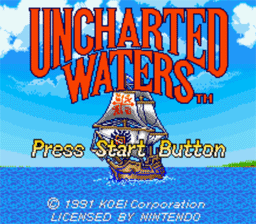Okay, So I'm ridiculously excited (and Kristen Davis is beautiful, so perfect image).
I just received my newest rotation of students and we are in week two of figuring out about one another.
I have this sort of PET project of mine that introduces me to them, gives them an overview of our class, and allows them to show off to me.
My Class:
Reading Through Technology - To teach students to be better digital natives by learning tools, resources and tricks to collaborate and create a collective intelligence of reading strategies for the 21st century.
Their task:
1. Research a Web 2.0 tool and make a 1-3 minute presentation.
2. Prepare a handout for students to walk away with something to learn about a topic.
Topics of choice:
Facebook, Twitter, Prezi, Blogs, Google, Web 2.0, Wiki, Voicethread
Some of the things I have seen students creating:
Keynote presentations, Pages documents, ActivInspire flipcharts, Xtranormal videos, Prezis, Google Presentations, Facebook organization pages, Blogs
Why can I do this
1. This aligns perfectly with my curriculum, through reading strategies I ask students to read webpages and evaluate content. Perfect for a creative lesson like this.
2. I have supportive administration and a belief that these (usually blocked) webpages can be used for good and for helping student learn. (I love our tech staff!!!)
Why is this uncharted waters?
I have never done this project before but kids are learning more about presenting, researching, and web 2.0 tools than I think I ever imagined.
I'll edit this post and send it out soon with links to all their resources and more detail so you can do this project or help me make this one better!
By the way, did I tell you these students are in 6th grade. WOW!
Student Work (SO FAR!)
Web 2.0 - Kids made an Xtranormal video. Didn't publish it because there was a cost, but we watched their video in class, kids were amazed by the resource (I warned them of the inappropriate videos).
Google - So depressed they thought google was ONLY a search engine. Lots of teaching opportunities here....
Twitter - Pretty good job here. Student created a slide show using keynote.
Wiki's - Pretty good, this handout goes with this prezi (
Link). They forgot to create the path, but they took a risk, sailed into uncharted waters, and created a cool product.
Wallwisher -
Cool presentation made on keynote and
handout made on pages. I love their creativity and use of the resource.
Web Browsers - His pdf doesn't translate to how cool the presentation was. Students used ActIvinspire (and our activboard) used layers and interaction of the students to quiz them on their presentation as they went along. This was a much cooler presentation than the pdf will allow.
Facebook - Students created an
organization on facebook and embedded their project through the discussion. Pretty cool. They also provided a pretty neat
handout. This was a great classroom discussion, lots of warnings from the adults and some really neat warnings kids were sharing. I was very proud.
Blogs - A student made a
Blog about Blogs. This one needs some more work. Give him a comment or Two to motivate him for me :-).
THANKS!
I could not have done ANY of this without the passion and access and creativity of our administration. They were invited to the student presentations and showed up t ask questions, give comments, pretty cool!





















